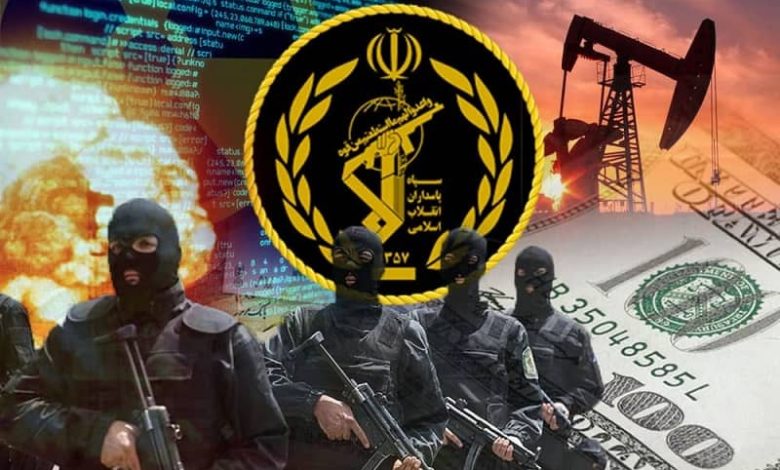Alternative to Islamic Fundamentalism

Iran – Islamic revolutionary guard corps – IRGC
Written by
Dr. Saeid Sajadi
Inside Iran’s Army of Terror and Oppression: Revolutionary Guards (IRGC)
[In the memory of late Sir David Amess MP, co-chairman of British Parliamentary Committee for Iran Freedom]
Recent events in the region from the Middle East to Central Asia and Europe indicate that the terrorism fostered by Islamic fundamentalism- its capital being Tehran- continues to be the main obstacle to global security as well as peace, freedom, prosperity in the region. Time after time, it has been demonstrated that military approaches cannot be relied upon as the primary strategy to confront the terrorism of Islamic fundamentalism in general. Then, what should the approach be?
The experience of the past several decades suggests that nationalism and other contemporary movements in the region are no match for the Islamic fundamentalism on the ground. A force capable of withstanding that phenomenon should be rooted in the region’s culture; it should be capable of disarming Islamic fundamentalism from its main weapon- i.e., the claim of representing Islam. Further, it should nurture a selfless generation ready to confront the forces of terrorism and Islamic fundamentalism at all fronts.
Before all pivotal advances in modern Europe became a reality — e.g., secular sovereign states, cultural renaissance, economic development, and transition to democracy, Europe had to be set free from the traditional religious chains through Luther’s reformation movement. Max Weber, considered by many to be the most prominent social theorist of the twentieth century, has linked the rise of capitalism in Europe to the Reformation and individualism fostered by it.
Luther’s movement was mainly a reformation in religion. However, today, a movement capable of defeating Islamic fundamentalism in all its forms cannot limit itself just to the task of reforming religion. It cannot merely function as Martin Luther but must also emulate Joan of Arc, George Washington, and Gandhi all at once.
The Iranian Resistance spearheaded by Maryam Rajavi represents such a movement on the global level. It is the antithesis of Islamic fundamentalism. From the cultural and ideological perspectives, this movement has already defeated the theocracy in Iran. The cost for such a development has been the lives of tens of thousands of affiliates of the People’s Mojahedin Organization of Iran (PMOI, or MEK), the followers of Maryam Rajavi. It is no coincidence that a vast majority of the Iranian people — nearly 95% of the population — are for regime change and a secular democratic system of governance. Within the Islamic world, the above phenomenon is unique to Iran and echoed by many sources within the regime.
The ruling regime in Iran manages to survive day-to-day only through extensive repression and execution. But this strategy is approaching a dead-end. The uprising of November 2019 is reflective of this fact. The selection of Raisi, infamous for his pivotal role in the execution of 30,000 political prisoners in 1988 [90% of whom were affiliates of the MEK], has two clear messages: (a) repression has drastically lost its effectiveness through efforts of a selfless generation of Iranians who are willing to pay the price of freedom at any cost, (b) Maryam Rajavi and the MEK are leading the movement to uproot the mullahs’ regime through a protest movement and uprising.
Raisi, Butcher of 1988 Massacre in Iran
The strategic weapon that Rajavi’s Resistance movement has utilized against the mullahs is a worldview that presents Islam as being in opposition to what the mullahs stand for on every subject, e.g., freedom, human dignity, women’s status in society, tolerance, and peace. Thus there is a practical way to determine what the MEK’s position would be on any issue. Take the mullahs’ position, reverse it by 180 degrees, and you’ll arrive at the position of Maryam Rajavi and the MEK. That’s the operational definition of antithesis in its purest form. However, the success, longevity, and viability of the MEK — the subject of the most gruesome persecutions for four decades — is that the above antithesis is not merely a theoretical hypothesis; it is rooted in reality and truth. Further, what immortalizes this alternative is a generation of selfless individuals who live by the above principles, embodied by Maryam Rajavi.
Lastly, due to the significant historical and cultural effects that Iran has had on the region, a free Iran with a reformed view of religion could usher in a new era of freedom, prosperity, and peaceful coexistence in the Middle East. A final victory for the movement of Maryam Rajavi in Iran is a win for the people of the region and is in the interest of global peace and security. An all-encompassing renaissance in the Middle East awaits a free Iran.

Dr. Saeid Sajadi
Dr. Saeid Sajadi has actively supported the movement for freedom and democracy in Iran for many years. He did all his undergraduate and graduate studies as well as professional training in the U.S. Dr. Sajadi is a practicing physician in the U.S., and he currently studies in the field of International Relations at Harvard University.

